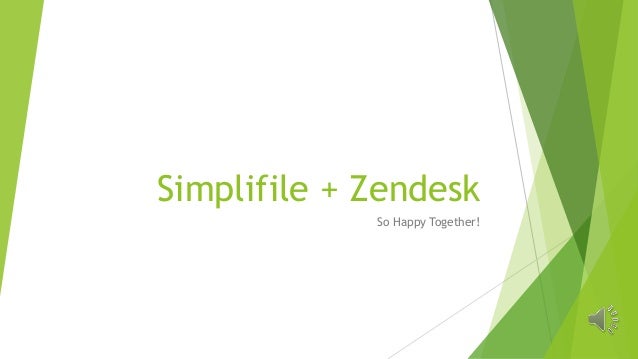The functions in this chapter will let you execute Python source code given in afile or a buffer, but they will not let you interact in a more detailed way withthe interpreter.
Simplifile pricing is affordable, as well, with an annual license fee, which covers, use by anyone in your office, plus a per document fee. The per document fee is only charged when the document is successfully recorded. It is a flat per document fee and the number of pages is irrelevant. Simplifile Video.
Several of these functions accept a start symbol from the grammar as aparameter. The available start symbols are Py_eval_input,Py_file_input, and Py_single_input. These are describedfollowing the functions which accept them as parameters.
Note also that several of these functions take FILE* parameters. Oneparticular issue which needs to be handled carefully is that the FILEstructure for different C libraries can be different and incompatible. UnderWindows (at least), it is possible for dynamically linked extensions to actuallyuse different libraries, so care should be taken that FILE* parametersare only passed to these functions if it is certain that they were created bythe same library that the Python runtime is using.
- SimpleFile Overview SimpleFile lets your FileMaker solutions easily access files stored anywhere on your hard drive, server, or network, allowing your users to keep their files and documents organized without ever leaving your solution’s user interface.
- B2B Prior Investment Simplifile is the leading provider of electronic recording (e-recording) services, having securely e-recorded millions of land record documents to date. Our e-recording solutions enable you to streamline your document recording processes—saving you time and money.
- Simplifile, however, allows lenders to take advantage of digital post-close efficiencies regardless of the type of signing and notarization. The platform automates the return of recorded documents.
- Simplifile has been a great tool for our office, and for our whole company. We definitely save time, but also fuel expense. One of our local offices is more than 45 minutes to the nearest courthouse, so recording there has always been a hassle. I think that it has also made it much better for buyers and sellers.
Py_Main(int argc, wchar_t **argv)¶The main program for the standard interpreter. This is made available forprograms which embed Python. The argc and argv parameters should beprepared exactly as those which are passed to a C program’s main()function (converted to wchar_t according to the user’s locale). It isimportant to note that the argument list may be modified (but the contents ofthe strings pointed to by the argument list are not). The return value willbe 0 if the interpreter exits normally (i.e., without an exception),1 if the interpreter exits due to an exception, or 2 if the parameterlist does not represent a valid Python command line.
Note that if an otherwise unhandled SystemExit is raised, thisfunction will not return 1, but exit the process, as long asPy_InspectFlag is not set.
Py_BytesMain(int argc, char **argv)¶Similar to Py_Main() but argv is an array of bytes strings.

PyRun_AnyFile(FILE *fp, const char *filename)¶This is a simplified interface to PyRun_AnyFileExFlags() below, leavingcloseit set to 0 and flags set to NULL.
PyRun_AnyFileFlags(FILE *fp, const char *filename, PyCompilerFlags *flags)¶This is a simplified interface to PyRun_AnyFileExFlags() below, leavingthe closeit argument set to 0.
PyRun_AnyFileEx(FILE *fp, const char *filename, int closeit)¶This is a simplified interface to PyRun_AnyFileExFlags() below, leavingthe flags argument set to NULL.
PyRun_AnyFileExFlags(FILE *fp, const char *filename, int closeit, PyCompilerFlags *flags)¶If fp refers to a file associated with an interactive device (console orterminal input or Unix pseudo-terminal), return the value ofPyRun_InteractiveLoop(), otherwise return the result ofPyRun_SimpleFile(). filename is decoded from the filesystemencoding (sys.getfilesystemencoding()). If filename is NULL, thisfunction uses '???' as the filename.
PyRun_SimpleString(const char *command)¶This is a simplified interface to PyRun_SimpleStringFlags() below,leaving the PyCompilerFlags* argument set to NULL.
PyRun_SimpleStringFlags(const char *command, PyCompilerFlags *flags)¶Executes the Python source code from command in the __main__ moduleaccording to the flags argument. If __main__ does not already exist, itis created. Returns 0 on success or -1 if an exception was raised. Ifthere was an error, there is no way to get the exception information. For themeaning of flags, see below.
Note that if an otherwise unhandled SystemExit is raised, thisfunction will not return -1, but exit the process, as long asPy_InspectFlag is not set.
PyRun_SimpleFile(FILE *fp, const char *filename)¶This is a simplified interface to PyRun_SimpleFileExFlags() below,leaving closeit set to 0 and flags set to NULL.
PyRun_SimpleFileEx(FILE *fp, const char *filename, int closeit)¶This is a simplified interface to PyRun_SimpleFileExFlags() below,leaving flags set to NULL.
PyRun_SimpleFileExFlags(FILE *fp, const char *filename, int closeit, PyCompilerFlags *flags)¶Similar to PyRun_SimpleStringFlags(), but the Python source code is readfrom fp instead of an in-memory string. filename should be the name ofthe file, it is decoded from the filesystem encoding(sys.getfilesystemencoding()). If closeit is true, the file isclosed before PyRun_SimpleFileExFlags returns.
Note
On Windows, fp should be opened as binary mode (e.g. fopen(filename,'rb')).Otherwise, Python may not handle script file with LF line ending correctly.
PyRun_InteractiveOne(FILE *fp, const char *filename)¶This is a simplified interface to PyRun_InteractiveOneFlags() below,leaving flags set to NULL.
Simplifile.com


PyRun_InteractiveOneFlags(FILE *fp, const char *filename, PyCompilerFlags *flags)¶Read and execute a single statement from a file associated with aninteractive device according to the flags argument. The user will beprompted using sys.ps1 and sys.ps2. filename is decoded from thefilesystem encoding (sys.getfilesystemencoding()).
Returns 0 when the input wasexecuted successfully, -1 if there was an exception, or an error codefrom the errcode.h include file distributed as part of Python ifthere was a parse error. (Note that errcode.h is not included byPython.h, so must be included specifically if needed.)
PyRun_InteractiveLoop(FILE *fp, const char *filename)¶This is a simplified interface to PyRun_InteractiveLoopFlags() below,leaving flags set to NULL.
PyRun_InteractiveLoopFlags(FILE *fp, const char *filename, PyCompilerFlags *flags)¶Read and execute statements from a file associated with an interactive deviceuntil EOF is reached. The user will be prompted using sys.ps1 andsys.ps2. filename is decoded from the filesystem encoding(sys.getfilesystemencoding()). Returns 0 at EOF or a negativenumber upon failure.
(*PyOS_InputHook)(void)¶Can be set to point to a function with the prototypeintfunc(void). The function will be called when Python’sinterpreter prompt is about to become idle and wait for user inputfrom the terminal. The return value is ignored. Overriding thishook can be used to integrate the interpreter’s prompt with otherevent loops, as done in the Modules/_tkinter.c in thePython source code.
(*PyOS_ReadlineFunctionPointer)(FILE *, FILE *, const char *)¶Can be set to point to a function with the prototypechar*func(FILE*stdin,FILE*stdout,char*prompt),overriding the default function used to read a single line of inputat the interpreter’s prompt. The function is expected to outputthe string prompt if it’s not NULL, and then read a line ofinput from the provided standard input file, returning theresulting string. For example, The readline module setsthis hook to provide line-editing and tab-completion features.
The result must be a string allocated by PyMem_RawMalloc() orPyMem_RawRealloc(), or NULL if an error occurred.
Changed in version 3.4: The result must be allocated by PyMem_RawMalloc() orPyMem_RawRealloc(), instead of being allocated byPyMem_Malloc() or PyMem_Realloc().
PyParser_SimpleParseString(const char *str, int start)¶This is a simplified interface toPyParser_SimpleParseStringFlagsFilename() below, leaving filename setto NULL and flags set to 0.
Deprecated since version 3.9, will be removed in version 3.10.
PyParser_SimpleParseStringFlags(const char *str, int start, int flags)¶This is a simplified interface toPyParser_SimpleParseStringFlagsFilename() below, leaving filename setto NULL.
Deprecated since version 3.9, will be removed in version 3.10.
PyParser_SimpleParseStringFlagsFilename(const char *str, const char *filename, int start, int flags)¶Parse Python source code from str using the start token start according tothe flags argument. The result can be used to create a code object which canbe evaluated efficiently. This is useful if a code fragment must be evaluatedmany times. filename is decoded from the filesystem encoding(sys.getfilesystemencoding()).
Deprecated since version 3.9, will be removed in version 3.10.
PyParser_SimpleParseFile(FILE *fp, const char *filename, int start)¶This is a simplified interface to PyParser_SimpleParseFileFlags() below,leaving flags set to 0.
Deprecated since version 3.9, will be removed in version 3.10.
PyParser_SimpleParseFileFlags(FILE *fp, const char *filename, int start, int flags)¶Similar to PyParser_SimpleParseStringFlagsFilename(), but the Pythonsource code is read from fp instead of an in-memory string.
Deprecated since version 3.9, will be removed in version 3.10.
PyRun_String(const char *str, int start, PyObject *globals, PyObject *locals)¶This is a simplified interface to PyRun_StringFlags() below, leavingflags set to NULL.
PyRun_StringFlags(const char *str, int start, PyObject *globals, PyObject *locals, PyCompilerFlags *flags)¶Execute Python source code from str in the context specified by theobjects globals and locals with the compiler flags specified byflags. globals must be a dictionary; locals can be any objectthat implements the mapping protocol. The parameter start specifiesthe start token that should be used to parse the source code.
Returns the result of executing the code as a Python object, or NULL if anexception was raised.
Simplifile Login
PyRun_File(FILE *fp, const char *filename, int start, PyObject *globals, PyObject *locals)¶This is a simplified interface to PyRun_FileExFlags() below, leavingcloseit set to 0 and flags set to NULL.
PyRun_FileEx(FILE *fp, const char *filename, int start, PyObject *globals, PyObject *locals, int closeit)¶This is a simplified interface to PyRun_FileExFlags() below, leavingflags set to NULL.
PyRun_FileFlags(FILE *fp, const char *filename, int start, PyObject *globals, PyObject *locals, PyCompilerFlags *flags)¶This is a simplified interface to PyRun_FileExFlags() below, leavingcloseit set to 0.
PyRun_FileExFlags(FILE *fp, const char *filename, int start, PyObject *globals, PyObject *locals, int closeit, PyCompilerFlags *flags)¶Similar to PyRun_StringFlags(), but the Python source code is read fromfp instead of an in-memory string. filename should be the name of the file,it is decoded from the filesystem encoding (sys.getfilesystemencoding()).If closeit is true, the file is closed before PyRun_FileExFlags()returns.
Py_CompileString(const char *str, const char *filename, int start)¶This is a simplified interface to Py_CompileStringFlags() below, leavingflags set to NULL.
Py_CompileStringFlags(const char *str, const char *filename, int start, PyCompilerFlags *flags)¶This is a simplified interface to Py_CompileStringExFlags() below, withoptimize set to -1.
Py_CompileStringObject(const char *str, PyObject *filename, int start, PyCompilerFlags *flags, int optimize)¶Parse and compile the Python source code in str, returning the resulting codeobject. The start token is given by start; this can be used to constrain thecode which can be compiled and should be Py_eval_input,Py_file_input, or Py_single_input. The filename specified byfilename is used to construct the code object and may appear in tracebacks orSyntaxError exception messages. This returns NULL if the codecannot be parsed or compiled.
The integer optimize specifies the optimization level of the compiler; avalue of -1 selects the optimization level of the interpreter as given by-O options. Explicit levels are 0 (no optimization;__debug__ is true), 1 (asserts are removed, __debug__ is false)or 2 (docstrings are removed too).
Py_CompileStringExFlags(const char *str, const char *filename, int start, PyCompilerFlags *flags, int optimize)¶Like Py_CompileStringObject(), but filename is a byte stringdecoded from the filesystem encoding (os.fsdecode()).
New in version 3.2.
PyEval_EvalCode(PyObject *co, PyObject *globals, PyObject *locals)¶
This is a simplified interface to PyEval_EvalCodeEx(), with justthe code object, and global and local variables. The other arguments areset to NULL.
PyEval_EvalCodeEx(PyObject *co, PyObject *globals, PyObject *locals, PyObject *const *args, int argcount, PyObject *const *kws, int kwcount, PyObject *const *defs, int defcount, PyObject *kwdefs, PyObject *closure)¶Evaluate a precompiled code object, given a particular environment for itsevaluation. This environment consists of a dictionary of global variables,a mapping object of local variables, arrays of arguments, keywords anddefaults, a dictionary of default values for keyword-only arguments and a closure tuple of cells.
PyFrameObject¶The C structure of the objects used to describe frame objects. Thefields of this type are subject to change at any time.
PyEval_EvalFrame(PyFrameObject *f)¶Evaluate an execution frame. This is a simplified interface toPyEval_EvalFrameEx(), for backward compatibility.
PyEval_EvalFrameEx(PyFrameObject *f, int throwflag)¶This is the main, unvarnished function of Python interpretation. The codeobject associated with the execution frame f is executed, interpretingbytecode and executing calls as needed. The additional throwflagparameter can mostly be ignored - if true, then it causes an exceptionto immediately be thrown; this is used for the throw()methods of generator objects.
Changed in version 3.4: This function now includes a debug assertion to help ensure that itdoes not silently discard an active exception.
PyEval_MergeCompilerFlags(PyCompilerFlags *cf)¶This function changes the flags of the current evaluation frame, and returnstrue on success, false on failure.
Simplifile E-recording
Py_eval_input¶The start symbol from the Python grammar for isolated expressions; for use withPy_CompileString().
Py_file_input¶The start symbol from the Python grammar for sequences of statements as readfrom a file or other source; for use with Py_CompileString(). This isthe symbol to use when compiling arbitrarily long Python source code.
Py_single_input¶The start symbol from the Python grammar for a single statement; for use withPy_CompileString(). This is the symbol used for the interactiveinterpreter loop.
PyCompilerFlags¶This is the structure used to hold compiler flags. In cases where code is onlybeing compiled, it is passed as intflags, and in cases where code is beingexecuted, it is passed as PyCompilerFlags*flags. In this case, from__future__import can modify flags.
Whenever PyCompilerFlags*flags is NULL, cf_flags is treated asequal to 0, and any modification due to from__future__import isdiscarded.
cf_flags¶Simplifile Ez Forms
Compiler flags.
cf_feature_version¶cf_feature_version is the minor Python version. It should beinitialized to PY_MINOR_VERSION.
The field is ignored by default, it is used if and only ifPyCF_ONLY_AST flag is set in cf_flags.
Changed in version 3.8: Added cf_feature_version field.
CO_FUTURE_DIVISION¶This bit can be set in flags to cause division operator / to beinterpreted as “true division” according to PEP 238.
For an eClosing strategy to be successful, settlement agents and notaries need to be able to coordinate on the closing, and lenders need to know whether electronic documents and transactions are accepted and recorded with the county in which the closing takes place.
Settlement agents often have to learn multiple systems and different processes to work with each lender and closing type, which can be overcomplicated and overwhelming. Lenders have to evaluate investor and underwriter acceptance of eClosings and check whether electronic documents will be recorded at the county level.
Simplifile has worked to solve both of these issues with consistency and simplicity by serving as a bridge between a lender’s eClosing system and settlement agents, notaries and counties. This enables lenders to provide a standardized platform for document delivery and settlement agent coordination across all closing types – ink, hybrid and full eClosings – and eliminates the need to learn multiple systems and separate workflows, which leads to greater eClosing adoption.
By leveraging Simplifile’s open network of tens of thousands of settlement agents and notaries, lenders can reduce their integration overhead and shorten their eClosing implementation time. The settlement agents and notaries in Simplifile’s ever-expanding network that use Simplifile are trained and supported to ensure that every transaction is expertly completed.
E-eligibility is at the heart of Simplifile’s platform, which examines each transaction in real time to check its electronic eligibility at the county level and allows every closing to be as electronic as possible.
While other systems may focus on state-level acceptance to determine whether eNotarized documents are legal, Simplifile’s e-eligibility indicators provide the latest policies at the county level, a better indicator of whether an eNotarized document will be recorded properly.
Because Simplifile can work with all eClosing systems, lenders can choose the tech that best fits their needs. Simplifile streamlines the complexity of eClosings by providing a consistent platform and workflow that clearly identifies for the agent and notary what needs to be done and provides single sign-on access to the lender’s chosen closing platform. If the agent can access the Simplifile platform, both the agent and lender can be confident that the proper tasks are being completed.
Additionally, other digital mortgage systems tend to end at the closing table. Simplifile, however, allows lenders to take advantage of digital post-close efficiencies regardless of the type of signing and notarization. The platform automates the return of recorded documents, final recording fees and taxes and final title policies, eliminating paper and shipping as well as reducing wait time.
“Our settlement users appreciate the ability to allow every closing to be as ‘e’ as possible with a focus on a consistent, transparent workflow and stress-free closing coordination,” said Nancy Alley, VP of Strategic Planning. “And because lenders drive the platform decision, settlement agents appreciate that Simplifile brings them this bridge to the lender’s eClosing system at no charge.”

Fast Facts:
- Founded in 2000 in Provo, Utah
- Over 25,000 settlement agent companies use Simplifile
- Network of over 2,100 eRecording counties
Mission statement:
Simplifile, part of Intercontinental Exchange, helps navigate the mortgage transaction by offering collaboration tools and post-closing visibility for mortgage lenders and settlement agents working together on real estate documents. Simplifile is also the nation’s largest eRecording network and connects settlement agents and county recorders via its eRecording service. Through Simplifile, users can securely record, share and track documents, data and fees with ease.
